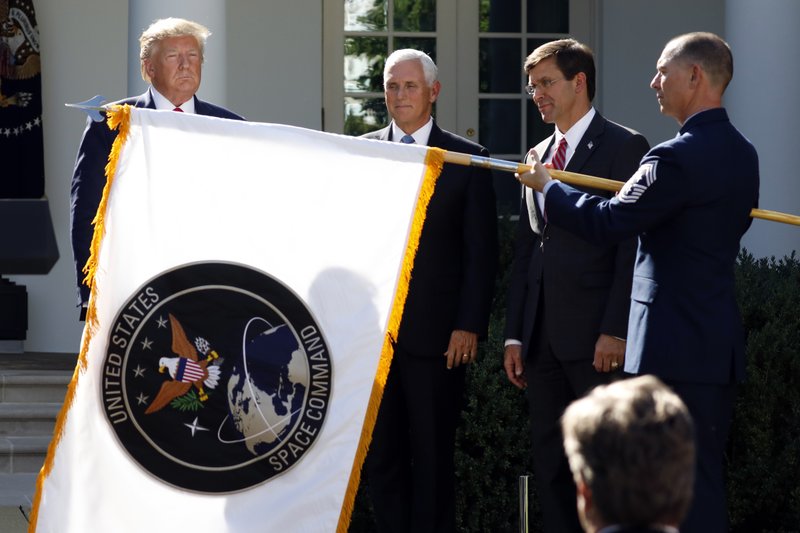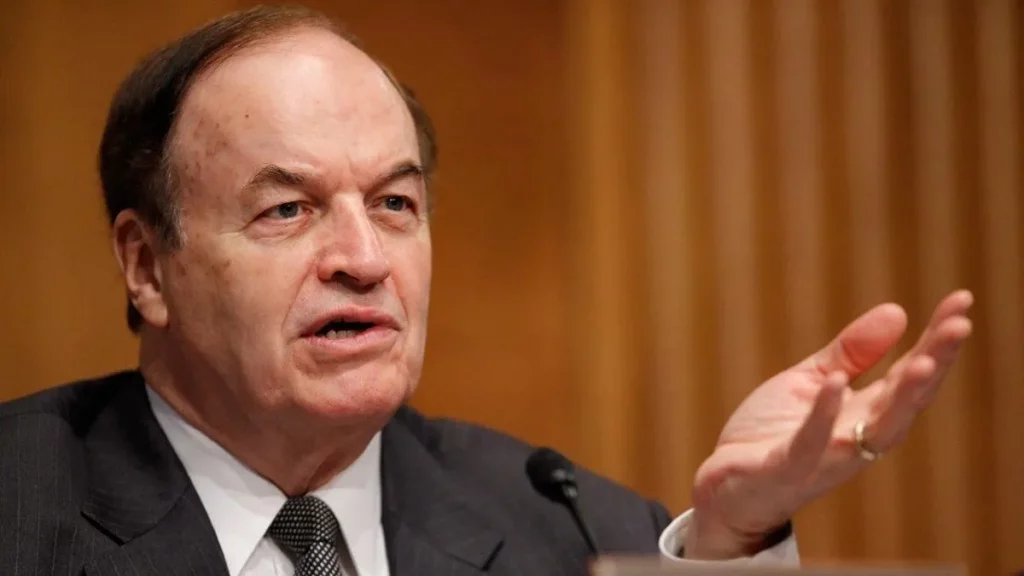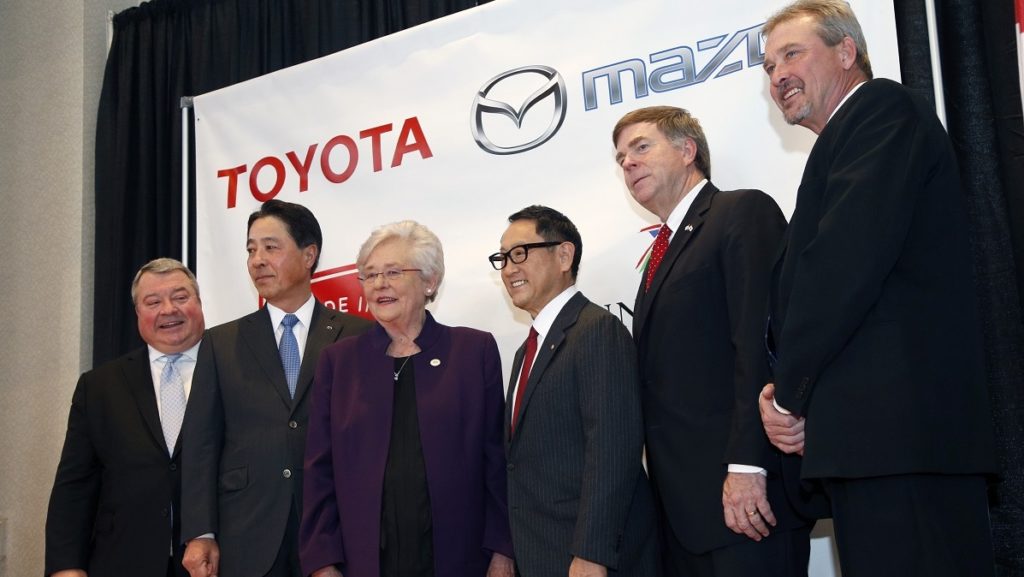Tommy Tuberville says Huntsville is best location for Space Command

The military made the decision to relocate Space Command to Redstone Arsenal in Huntsville in 2020. Yet, the move has not been completed due to opposition from the Colorado congressional delegation, which has challenged the process at every turn. Now there are reports that they may get their way. In response, U.S. Senator Tommy Tuberville recently wrote an opinion column in the Washington Post. “Two independent studies from the Department of Defense Inspector General and the Government Accountability Office nonetheless affirmed the process that ranked Alabama as the best choice for the Space Command. Colorado didn’t make the top three,” Tuberville wrote. Despite this, there are growing concerns that politics may trump the nonpartisan process which the Pentagon used to determine the best location for Space Command. An anonymous White House source in David Ignatius’s March 24 op-ed, “A move to undo a political play on the Space Command,” suggested that President Joe Biden will upend the Air Force decision to put the Space Command headquarters at Redstone Arsenal in Huntsville, Ala. The op-ed claimed that President Donald Trump chose Huntsville for political reasons. In fact, the Air Force secretary made the decision, which was confirmed by the acting defense secretary and finalized by the president. “The military’s decision to place the Space Command at Redstone Arsenal is what is best for national security and for taxpayers,” Tuberville concluded. “If Mr. Biden overrules the Air Force, it will be Washington at its worst — a president putting politics above plain facts. The Space Command belongs in the Rocket City.” On Monday, the Huntsville/Madison Chamber of Commerce was in Washington D.C., where they were addressed by Sen. Tuberville. Chamber President Chip Cherry and Madison County Commission Chairman Mac McCutcheon joined Sen. Tuberville to voice their support for Space Command coming to Redstone Arsenal. “Madison County has the resources available to accept Space Command coming to Huntsville, and we’re excited about that,” Commissioner McCutcheon wrote. “For a couple of years, this has been on the front burner with the Air Force. They have done studies on this program, and all the information has come back has shown that Space Command needs to be in Huntsville, Alabama.” “I just hope that as President Biden moves forward with this, I hope that he will realize that the safety of our country is at stake,” McCutcheon continued. “Let’s take that information in the studies that were done and provide the Space Command with the best location that it should be in.” “Security is the reason,” McCutcheon stated. “Let’s bring Space Command to Huntsville where it should be, and let’s take politics out of it.” Alabama Speaker of the House Nathaniel Ledbetter said on Twitter, “Colorado’s federal delegation continues to hold up the Space Command process with no merit backing their position. Tommy Tuberville is right. It’s facts, not politics.” Colorado’s congressional delegation has claimed that the studies performed by the Air Force were a flawed process. Tuberville has represented Alabama in the U.S. Senate since his election in 2020. To connect with the author of this story or to comment, email brandonmreporter@gmail.com.
Alabama Sen. Richard Shelby’s lasting legacy

If Alabama is prospering, thank retiring U.S. Sen. Richard Shelby. That’s the refrain from the coast to the mountains among those responsible for economic and industrial development. While representing the state in the U.S. Senate for six terms – 36 years – preceded by work as an attorney, roles in state government, and eight years in the U.S. House of Representatives, Shelby earned a reputation as one who can understand the issues, work across the aisle to get things done and look ahead with a clear vision of what the state can achieve in the future. Ask in Huntsville; they’ll tell you his support of space and defense was critical to that entire region. Ask in Montgomery or Tuscaloosa or Lincoln or Huntsville, and they’ll tell you federal dollars for roads and public works made it possible to attract an automotive industry that thrives today in the state’s heartland. Ask at the universities, and they’ll tell you that federal support helps educate today’s students to meet the needs of growing industries. And ask in Mobile and hear the story of phenomenal growth at the port – how it impacts the Port City and then sends goods on trains and interstates and inland waterways to reach the whole Alabama economy. And all of them will tell you that without Richard Shelby, the economy just wouldn’t be what it is today. Business Alabama asked key individuals around the state for their examples of Shelby’s impact. Here’s what they had to say. Chip Cherry President & CEO, Huntsville/Madison County Chamber of Commerce “Sen. Shelby has been a blessing to us in the sense that he has the ability to see how the different pieces of the puzzle are scattered about and what can be brought together to benefit both the country and the state.” Cherry’s favorite example is at Huntsville’s Redstone Arsenal, centerpiece of the space and defense work and more recently of the FBI’s Southern headquarters. “He saw the synergies between what was happening at Redstone and what the FBI was doing” and helped bring the FBI. The move “allows for collaboration among federal partners on the same campus,” he said. Shelby, he said, “has been a strong advocate, informing his colleagues of the value of what happens at Redstone and making the case for how investment there benefits the entire country. And that benefits us as a region. “I believe in my heart that he’s more of a statesman than a politician – able to work across party lines to make a case and build consensus. That’s an unusual thing to happen in D.C. these days.” Finis St. John IV Chancellor, University of Alabama System “Sen. Shelby recognized and strongly believed from early on in his career that education and higher education were the ways that the state could advance. He has been a tireless supporter of higher education, research, health care – all of which are integral to our mission at the University of Alabama System. “It’s hard to list all the ways he’s helped advance our mission, but nobody in anyone’s memory has been more important to that.” And why is higher education important to the state’s economy? “It’s the pipeline for the people that execute our economy,” St. John said. “If we do a better job at generating that raw material, then every entity in the state is better off, every business, government, all areas of the economy do better with higher equality results from higher education. “Every time you talk to a business leader right now, the biggest problem they face is workforce. Nobody has enough people, and they don’t have qualified people. Not only are we trying to address that with Alabama students but also by bringing in out-of-state students and then working with government and industry to entice them to stay in Alabama.” Shelby’s influence goes well beyond higher education and research funding, St. John noted. “It hasn’t been piecemeal, but comprehensive.” Shelby was a family friend as St. John was growing up, and he considers the senator “a dear friend, mentor and adviser, whose wisdom I’ve been very fortunate to benefit from for a long time.” Greg Barker President, Economic Development Partnership of Alabama “We’re in a global economy right now, so having somebody like Sen. Shelby, who is a constant advocate for the right federal policies that position the United States for growth and as a good place to do business, that’s paramount.” “He was an aggressive advocate for a wide range of elements that made the U.S. a better place to live and work. That’s where you start,” said Barker, who previously was an executive at Alabama Power. “When you think of business growth and development, you have to have the right infrastructure, and that infrastructure is expensive. It takes federal money to build roads and water systems and everything.” Shelby was particularly good at “making sure Alabama is aware of the federal programs and very competitive to be able to receive federal money and put it to good use for Alabamians.” Shelby, he said, “was a very distinguished and influential U.S. senator, and that put him in a lot of interesting rooms with interesting people – and he was consistently an advocate for Alabama, suggesting that people consider it for future growth for their company.” Barker especially respected the senator’s role in getting roadbuilding funds that enabled the establishment of Mercedes-Benz U.S. International in Tuscaloosa County and water system funding that enabled construction of the Honda plant in Talladega County. “I don’t think it’s an exaggeration at all to say that Alabama’s advanced manufacturing success – for the auto industry alone – is due to him.” Greg Canfield Secretary, Alabama Department of Commerce “From my perspective, what’s most impressive about Sen. Shelby’s legacy in Alabama is his impact on Alabama’s economic engines and the infrastructure that drives our economy.” Canfield called out examples across the state – the port with the most container traffic in its history; the universities with
Ivey leads Alabama team in talks with Japanese automakers

Gov. Kay Ivey is leading a small team of Alabama economic development specialists on a business development mission to Japan for high-level meetings with leaders of global automakers Toyota, Mazda and Honda. The Alabama delegation is departing for Japan today and will return on Thursday following appointments in Tokyo. The mission’s strategic goal is to facilitate growth in the state’s automotive sector and extend relationships with the manufacturers. Bill Hagerty is the U.S. ambassador to Japan. (contributed) “The auto industry has been a key driver of economic growth in Alabama for two decades, and we want to make sure we’re positioned to see that growth accelerate in coming years,” Ivey said. “It’s important that we work closely with these automakers to ensure they thrive in Alabama because that will bring more jobs and investment to the state.” In addition to meeting with executives from the three automakers, the Alabama group will visit the U.S. Embassy in Tokyo to meet with Ambassador Bill Hagerty. There, the discussion is expected to center on the business climate in Japan and unfolding trade developments affecting both countries. “Ambassador Hagerty was one of the first people to call me and congratulate Alabama on attracting the Toyota-Mazda investment. This meeting shows the importance that Alabama plays on the world stage and I appreciate the work the ambassador does on behalf of our nation,” Ivey said. “I look forward to the meeting and to working with him to continue the strong relationship between Japan and Alabama.” Mission agenda The Japan mission comes as the Mazda Toyota Manufacturing USA joint venture partnership is beginning to move forward with plans for a $1.6 billion assembly plant in Huntsville that will employ 4,000 people and spawn a significant network of suppliers. Greg Canfield, secretary of the Alabama Department of Commerce, said the discussions with Mazda and Toyota executives will focus on moving the assembly plant project forward. In addition, the talks will center on how their critical supply chain can be filled out leading up to a planned production launch in 2021. “While we have a longstanding relationship with Toyota, we’re still developing bonds with Mazda, which has no manufacturing presence in the U.S.,” Canfield said. “We can use our extensive experience in assisting automakers expand their footprint to help the company build out a productive and efficient operation in Alabama.” Leaders from Toyota and Mazda announced their decision in January 2018 to open the assembly plant at a site in Huntsville that’s just 14 miles from a Toyota engine plant that has almost 1,400 workers after multiple expansions. Joining Ivey and Canfield in the meetings with Mazda and Toyota executives will be Huntsville Mayor Tommy Battle, Tennessee Valley Authority CEO Bill Johnson and Chip Cherry, president and CEO of the Huntsville/Madison County Chamber of Commerce. Steve Pelham, Ivey’s chief of staff, and Hollie Pegg, assistant director of business development at the Alabama Department of Commerce, will also be included in these meetings. Honda appointment Ivey, Canfield, Pelham and Pegg will also engage in talks with leaders of Honda, which operates a $2.6 billion assembly plant in Talladega County with 4,500 full-time workers. In early 2017, Honda announced an $85 million expansion as part of a multi-phase project to improve manufacturing flexibility at the Alabama factory and prepare it for future technologies. Canfield said the meetingAla with Honda is meant to reinforce Alabama’s strong relationship with the automaker and discuss how the state can support the facility’s new leadership and future growth plans. “Honda is a very important member of the Alabama automotive manufacturing family, and we’re committed to working closely with this great company as it pursues new levels of success at its Talladega County operation,” he said. Ivey said she hopes these meetings will lead to additional economic growth for Alabama and more trade between the state and Japan. Republished with the permission of Alabama Newscenter.
Huntsville supporting Remington amid bankruptcy filing

An Alabama city has reiterated its support for a firearms manufacturer that filed for bankruptcy. Huntsville officials told AL.com in a statement Monday its economic development team will continue engagement with Remington. The company filed for Chapter 11 bankruptcy protection Sunday. The statement also acknowledges Remington is behind on job-hiring obligations tied to financial incentives. A project development agreement between Huntsville and Remington was approved by the city council in February 2014. Remington promised to have 680 employees at its Huntsville facility by the end of “project year” 2017. The statement says Remington has approximately 500 local employees and contributes $30 million in annual payroll into the community. Huntsville-Madison County Chamber of Commerce CEO Chip Cherry says Remington met its other obligations: capital investment at the facility and overall wages paid. Republished with the permission of the Associated Press.

